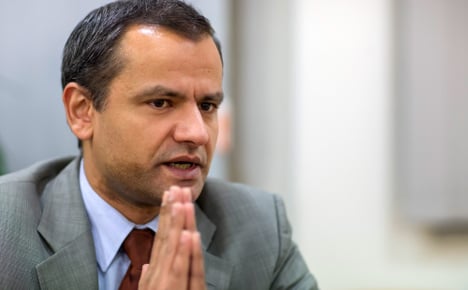The trial against Sebastian Edathy, a former high-flying MP known for his fight against far-right extremists, is due to begin on February 23rd, the court in the northern town of Verden said.
He is accused of seven cases of downloading images and video files featuring child pornography on to his work laptop, it said.
He is also suspected of having been in possession of a picture book and a CD deemed by prosecutors to contain illicit material featuring minors.
Edathy, a member of the Social Democrats (SPD), partners in Chancellor Angela Merkel's left-right coalition government, was charged by prosecutors in July but the Verden court still had to decide if the case would go to trial.
Edathy resigned from his Bundestag seat citing health reasons in February, just days before it emerged that his home and offices had been searched.
The case triggered a major political scandal at the start of Merkel's third term, with the subsequent resignation of a cabinet minister under pressure over suspicions he had leaked confidential information about the probe.
Edathy has vehemently denied the child pornography charges, for which he could face two years in prison.
He gained prominence for heading a parliamentary panel into the shock 2011 discovery of the National Socialist Underground (NSU), a neo-Nazi killer cell.
Edathy's case also touched off a debate in Germany about child pornography laws.
Last week MPs in the Bundestag approved reforms to sexual crimes legislation, including the tightening of rules on pictures of naked children and minors.




 Please whitelist us to continue reading.
Please whitelist us to continue reading.
Member comments